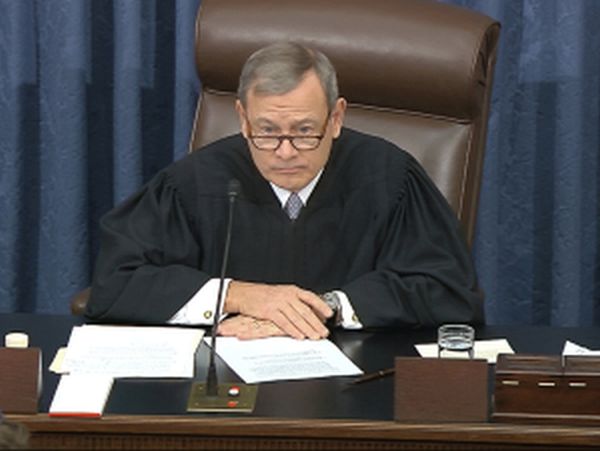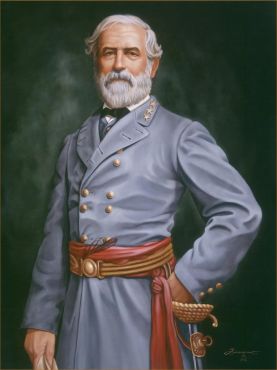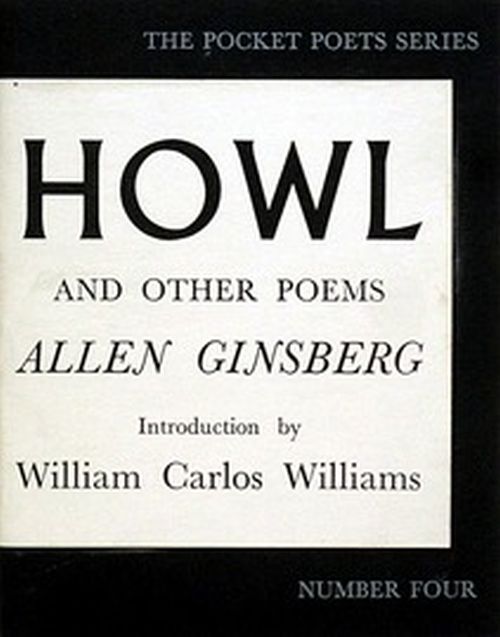Polite fictions
From The New CriterionSurely not? I couldn’t believe it when I heard the news. Even Chief Justice John Roberts, the man who had said that he and his fellow justices “don’t work as Democrats or as Republicans,” and who, after the rabidly partisan Kavanaugh hearings in 2018, had also said that “we do not have Obama judges or Trump judges” — even he, I thought, could not possibly have expected to be taken seriously when, at one o’clock in the morning after the first day of President Trump’s impeachment trial in the Senate, he said, “I think it is appropriate at this point for me to admonish both the House managers and the president’s counsel in equal terms to remember that they are addressing the world’s greatest deliberative body.” No, I thought, he must have been making a joke, though one that could hardly be considered appropriate to the solemnity with which Nancy Pelosi had insisted the impeachment of a president should be treated.
Or was it possible that the Harvard-educated Chief Justice had not known that he was telling a joke? A quick Google search turns up no non-ironic example of the Senate’s being described as “the world’s greatest deliberative body” or “the greatest deliberative body in the world” later than 1860. That was when the Honorable Marcus Junius Parrot wrote in the Elwood, Kansas, Free Press: of “resolutions which, to the lasting disgrace of our country, were adopted by the United States Senate. Speeches and not action; words, not deeds — this is now the rule, and the ‘greatest deliberative body in the world’ has degenerated into a scurrilous arena of abusive debates.”
Plus ça change. . ., as the French say.
After long thought, however, I decided that Mr Roberts could not possibly have been ignorant of such a long-accepted and exclusively sarcastic usage. And if he was making a joke — as much at his own as at the senators’ expense, it might be thought, since he was to be sitting, po-faced, at the head of these farcical proceedings — it had to have been for one of two reasons. Either he was signaling his awareness of the absurdity of the trial in which he and the senators and the House managers were then engaged or else he intended — as he must also have done back in 2018 with his denial of what might seem the undeniable fact of judicial partisanship — that all the little polite fictions by which our public life has been wont to be conducted and which are now under threat are to be firmly upheld for so long as he sits in the chair. Even so venerable and so blatantly fictitious a fiction as that he was there addressing the world’s greatest deliberative body.
Actually, the two possibilities are not so much opposed to one another as they might seem to be. The very existence of polite fictions — such as the fiction that impeachment had arisen out of the disinterested concern of public-spirited Democrats to preserve constitutional norms and not as a squalid partisan affair, some pretext for which the self-proclaimed “Resistance” had been seeking since even before the President was elected — comes about because we are aware of the absurdity of regarding them as the firmly established truths they pretend to be. If they weren’t absurd, we wouldn’t have to enforce lip service to them in the name of politeness. But it will not have escaped the reader’s notice that politeness among our public men and women has come under some considerable strain of late, and the Chief Justice must have been putting both sides on notice that he considered the maintenance of some semblance of public decorum in the circumstances to be more important than the proprietary “truths” of either side, which could never be reconciled anyway but only shouted angrily at one another across the chamber.
Some hope! The joke in “the world’s greatest deliberative body” lay at least as much in the word “deliberative” as in “the world’s greatest,” since anything resembling genuine deliberation or debate was now obviously impossible where the polite but necessary fiction of a mutual respect by each side for the good faith of the other had long since gone by the board. The Chief’s admonishment had come after repeated allegations from the House managers that the President and his defenders were lying or engaging in a “cover-up” of the truth. We used to forbid this kind of thing, now becoming nearly as commonplace in Congress as it has long been in the media, as what, in the Mother of Parliaments they refer to as “unparliamentary language,” and Mr Roberts must have meant that, in the ideal world which he chooses to inhabit, we still do — though, quite obviously, we don’t.
For this partisan rancor in particular and for the breakdown of the useful pretense of comity in our legislative chambers more generally we have the media to thank. On the eve of the impeachment trial, the Washington Post’s indefatigable but ever more obviously misnamed “fact checkers” came up with a new total for the President’s alleged “lies” since taking office — except that now the word “lie” is only implied without being used. Instead the list is said to comprise only “false or misleading claims” (quaere: is it not a false or misleading claim to use “false or misleading claim” when what you mean is “lie”?) — and they are alleged to number 16,241 as of January 20, the third anniversary of his inauguration. No doubt that number still includes the hundreds of times when he said that the Mueller investigation was a witch hunt or that the FBI was spying on him, both of which things are now, one would have thought, indisputably true. The alleged total certainly includes the 257 times he has claimed that the U.S. economy under his stewardship is “the best in history” — which may be leading but is not misleading. Depending on what measures of economic goodness you use, you can agree or disagree, but you can’t class it as a lie, even a euphemistically mislabeled one.
It ought to be obvious that calling these things lies (or “false or misleading claims”) is itself a lie. But the very word “lie,” like the world’s greatest deliberative body which now uses it so promiscuously, has been corrupted by its failure to stick to traditional norms. As I noticed in these pages way back in 2012 (see “Lexicographic Lies” in The New Criterion of October, 2012) the word “lie” has been literally redefined in the 21st century. The antiwar left during the Iraq war led the way by calling then-President Bush’s justification for that war with reference to Saddam Hussein’s “weapons of mass destruction” a lie, even though it was obviously a mistake rather than a lie. Then, lo and behold, we discovered that latitudinarian dictionary-makers had re-written the old definition of “lie,” which had formerly required an intention to deceive, to include mistakes. Any indicative statement contrary to fact could now be a lie — presumably including irony, like that of “the world’s greatest deliberative body” — if it suited the speaker’s political purpose. The fact-checkers have thus led the way for the media and then for politicians to use the word “lie” to mean no more than “something I disagree with.”
Now, if there are many more kinds of statements than there used to be that are called lies, there are also many more lies, as traditionally understood, that no longer count as lies once they make the transition to polite fictions — “polite” because to call them “fictions” tout court, let alone lies, would be such bad manners in a member of the ruling class as to get him or her excluded from that class, if not worse. Two months ago I cited the example of Nancy Pelosi’s words to the press on launching the house impeachment inquiry at the end of October (see “Just ‘politics'” in The New Criterion of December, 2019), including her opening avowal that this was “a sad day” for her and her fellow Democrats “because nobody comes to Congress to impeach a president of the United States, no one.” Just how sad a day it was for her became clear when, after delaying for more than a month, she finally sent the House’s impeachment case over to the Senate after passing out commemorative pens with which she had signed the impeachment motion.
When such obvious falsehoods as these are allowed to pass without notice, it must have seemed no great leap to House managers to start talking in all seriousness of Mr Trump as a would-be monarch who wants to see the heads of his enemies on pikes (Adam Schiff) or even as an actual dictator (Jerry Nadler). If they regard it as their privilege to decide what is true and what is not, why should they not engage even in such intemperate and obviously mendacious rhetoric as this in what purports, still, to be a deliberative body? What they are really doing is announcing to the senate on behalf of what used to be called (when it applied to quite different norms) “decent opinion” what polite fictions under the novus ordo seclorum are required to be accepted as truths by anyone who expects to remain a member of decent society.
Or look at Joe Biden’s calling the retired farmer in Iowa who questioned him about corruption in connection with his son’s lucrative sinecure with the Ukrainian energy company Burisma “a damn liar.” It seems probable to me that he genuinely thought the man was a liar — for the same reason that he may have genuinely believed it when, back in 2012, he said to a predominantly black audience that Mitt Romney would “put y’all back in chains.” Not, that is, because it was true but because it was one of those polite fictions that the media had chosen to regard as true for purposes of identifying those who are qualified to to speak for decent opinion.
It’s only what the New York Times has been doing for years. Take the paper’s editorial on the Senate’s failure to vote to call additional witnesses in the trial of the President, which was headed “A Dishonorable Senate.” There’s nothing unusual about the media’s understanding of honor as accruing to those who do what they want them to do, while those who don’t do what they want them to do are thereby dishonored, but when you think about it, the idea is absurd. It drains these words of all meaning except: “something I like” or “something I don’t like.” The same is true of the article’s sub-heading: “Republican legislators abdicated their duty by refusing to seek the truth” — there being hardly even a pretense that “truth,” as the Times understands it, could ever mean anything not to the discredit or even the inculpation of Mr Trump.
In the same way the Times columnist Paul Krugman uses the word “principle” when he writes that today’s Republican party “contains no politicians of principle” — by which he means only that it contains no politicians who agree with him. But this is the way the media want it. “Honor” and “principle,” like “truth” and “lie” — or “constitutional” and “unconstitutional” in the mouths of the impeachers — are now valuable to public discourse not for anything they purport objectively to describe but only for their usefulness as epithets against our enemies.
So, too, news has become only newsworthy if it can be used to further some scandal narrative against someone the media dislike. No doubt the House managers in the impeachment trial were following the media’s lead in assuming that the only “truth” or “evidence” that should interest the senatorial jury was that which might tend to bolster their case for the removal of the President from office. The idea of a truth of the opposite tendency, like that of an honorable enemy, or even an honorable (or loyal) opposition thus becomes incomprehensible — which means that honor itself is incomprehensible.
In the past, groups of people enjoying a certain kind of social prestige have enforced standards of belief and behavior, both on their members and on those who might wish to become members, by controlling access to themselves and the good things they have to offer and excluding those who fall short of those standards. The idea of middle-class respectability, about which so many of the writers and artists of the last century were so largely concerned, nearly always in a critical way, and which still retained considerable potency within living memory, was just such an exercise in social prestige. After the various revolutions of that century, however, both political and cultural, many of the revolutionaries imagined that the golden age with which they wished to replace such outmoded ways would be a time of radical individualism wherein all men (and especially all women) would be free to set their own standards, excluding no one by them and being excluded by no one on their account.
But I think there can be no time or place on record where such expectations were not disappointed. If people are social animals, they are also socially exclusionary animals, always in search of the socially prestigious group prepared to accept them, in exchange for adopting the group’s beliefs and customs, and to exclude others for not doing so. We may think such aspirations foolish or even wicked, but it’s not as if we haven’t instituted our own set of qualifications for entry into our most-favored social groups — which are proud to think of themselves as part of a “meritocracy,” even though their codes of mannerly behavior are at least as strict as those of the old aristocracy and have even less to do with anything our ancestors would have recognized as “merit.”
Surely it must be something of this sort which accounts both for the virulence of the hatred so much of our ruling class feels towards Donald Trump and for the polite fiction by which, like Nancy Pelosi, they feel constrained to deny such hatred. He threatens not only the whole set of new, socially-defined truths that he is not wrong to describe as “political correctness” but also the social and professional position promised by our media and political culture to those who subscribe to those truths. This must also be why the more he is excoriated for not living up to the beliefs and practices of the elite, the better he is liked by those millions of Hillary Clinton’s “deplorables” who see his exclusion as mirroring their own. They couldn’t be expected to be impressed by any expansion of the universe of disqualifying behaviors and belief, based on creative use of the new meanings of “lying” and “truth,” until they encompass virtually everything the President does or says. Even Chief Justice Roberts must see this. That’s why there is room for hope in the outcome of the impeachment fiasco that at least a majority of senators recognized that it was not the president but the corruption of the language that was on trial.
 |
Surely not? I couldn’t believe it when I heard the news. Even Chief Justice John Roberts, the man who had said that he and his fellow justices “don’t work as Democrats or as Republicans,” and who, after the rabidly partisan Kavanaugh hearings in 2018, had also said that “we do not have Obama judges or Trump judges” — even he, I thought, could not possibly have expected to be taken seriously when, at one o’clock in the morning after the first day of President Trump’s impeachment trial in the Senate, he said, “I think it is appropriate at this point for me to admonish both the House managers and the president’s counsel in equal terms to remember that they are addressing the world’s greatest deliberative body.” No, I thought, he must have been making a joke, though one that could hardly be considered appropriate to the solemnity with which Nancy Pelosi had insisted the impeachment of a president should be treated.
Or was it possible that the Harvard-educated Chief Justice had not known that he was telling a joke? A quick Google search turns up no non-ironic example of the Senate’s being described as “the world’s greatest deliberative body” or “the greatest deliberative body in the world” later than 1860. That was when the Honorable Marcus Junius Parrot wrote in the Elwood, Kansas, Free Press: of “resolutions which, to the lasting disgrace of our country, were adopted by the United States Senate. Speeches and not action; words, not deeds — this is now the rule, and the ‘greatest deliberative body in the world’ has degenerated into a scurrilous arena of abusive debates.”
Plus ça change. . ., as the French say.
After long thought, however, I decided that Mr Roberts could not possibly have been ignorant of such a long-accepted and exclusively sarcastic usage. And if he was making a joke — as much at his own as at the senators’ expense, it might be thought, since he was to be sitting, po-faced, at the head of these farcical proceedings — it had to have been for one of two reasons. Either he was signaling his awareness of the absurdity of the trial in which he and the senators and the House managers were then engaged or else he intended — as he must also have done back in 2018 with his denial of what might seem the undeniable fact of judicial partisanship — that all the little polite fictions by which our public life has been wont to be conducted and which are now under threat are to be firmly upheld for so long as he sits in the chair. Even so venerable and so blatantly fictitious a fiction as that he was there addressing the world’s greatest deliberative body.
Actually, the two possibilities are not so much opposed to one another as they might seem to be. The very existence of polite fictions — such as the fiction that impeachment had arisen out of the disinterested concern of public-spirited Democrats to preserve constitutional norms and not as a squalid partisan affair, some pretext for which the self-proclaimed “Resistance” had been seeking since even before the President was elected — comes about because we are aware of the absurdity of regarding them as the firmly established truths they pretend to be. If they weren’t absurd, we wouldn’t have to enforce lip service to them in the name of politeness. But it will not have escaped the reader’s notice that politeness among our public men and women has come under some considerable strain of late, and the Chief Justice must have been putting both sides on notice that he considered the maintenance of some semblance of public decorum in the circumstances to be more important than the proprietary “truths” of either side, which could never be reconciled anyway but only shouted angrily at one another across the chamber.
Some hope! The joke in “the world’s greatest deliberative body” lay at least as much in the word “deliberative” as in “the world’s greatest,” since anything resembling genuine deliberation or debate was now obviously impossible where the polite but necessary fiction of a mutual respect by each side for the good faith of the other had long since gone by the board. The Chief’s admonishment had come after repeated allegations from the House managers that the President and his defenders were lying or engaging in a “cover-up” of the truth. We used to forbid this kind of thing, now becoming nearly as commonplace in Congress as it has long been in the media, as what, in the Mother of Parliaments they refer to as “unparliamentary language,” and Mr Roberts must have meant that, in the ideal world which he chooses to inhabit, we still do — though, quite obviously, we don’t.
For this partisan rancor in particular and for the breakdown of the useful pretense of comity in our legislative chambers more generally we have the media to thank. On the eve of the impeachment trial, the Washington Post’s indefatigable but ever more obviously misnamed “fact checkers” came up with a new total for the President’s alleged “lies” since taking office — except that now the word “lie” is only implied without being used. Instead the list is said to comprise only “false or misleading claims” (quaere: is it not a false or misleading claim to use “false or misleading claim” when what you mean is “lie”?) — and they are alleged to number 16,241 as of January 20, the third anniversary of his inauguration. No doubt that number still includes the hundreds of times when he said that the Mueller investigation was a witch hunt or that the FBI was spying on him, both of which things are now, one would have thought, indisputably true. The alleged total certainly includes the 257 times he has claimed that the U.S. economy under his stewardship is “the best in history” — which may be leading but is not misleading. Depending on what measures of economic goodness you use, you can agree or disagree, but you can’t class it as a lie, even a euphemistically mislabeled one.
It ought to be obvious that calling these things lies (or “false or misleading claims”) is itself a lie. But the very word “lie,” like the world’s greatest deliberative body which now uses it so promiscuously, has been corrupted by its failure to stick to traditional norms. As I noticed in these pages way back in 2012 (see “Lexicographic Lies” in The New Criterion of October, 2012) the word “lie” has been literally redefined in the 21st century. The antiwar left during the Iraq war led the way by calling then-President Bush’s justification for that war with reference to Saddam Hussein’s “weapons of mass destruction” a lie, even though it was obviously a mistake rather than a lie. Then, lo and behold, we discovered that latitudinarian dictionary-makers had re-written the old definition of “lie,” which had formerly required an intention to deceive, to include mistakes. Any indicative statement contrary to fact could now be a lie — presumably including irony, like that of “the world’s greatest deliberative body” — if it suited the speaker’s political purpose. The fact-checkers have thus led the way for the media and then for politicians to use the word “lie” to mean no more than “something I disagree with.”
Now, if there are many more kinds of statements than there used to be that are called lies, there are also many more lies, as traditionally understood, that no longer count as lies once they make the transition to polite fictions — “polite” because to call them “fictions” tout court, let alone lies, would be such bad manners in a member of the ruling class as to get him or her excluded from that class, if not worse. Two months ago I cited the example of Nancy Pelosi’s words to the press on launching the house impeachment inquiry at the end of October (see “Just ‘politics'” in The New Criterion of December, 2019), including her opening avowal that this was “a sad day” for her and her fellow Democrats “because nobody comes to Congress to impeach a president of the United States, no one.” Just how sad a day it was for her became clear when, after delaying for more than a month, she finally sent the House’s impeachment case over to the Senate after passing out commemorative pens with which she had signed the impeachment motion.
When such obvious falsehoods as these are allowed to pass without notice, it must have seemed no great leap to House managers to start talking in all seriousness of Mr Trump as a would-be monarch who wants to see the heads of his enemies on pikes (Adam Schiff) or even as an actual dictator (Jerry Nadler). If they regard it as their privilege to decide what is true and what is not, why should they not engage even in such intemperate and obviously mendacious rhetoric as this in what purports, still, to be a deliberative body? What they are really doing is announcing to the senate on behalf of what used to be called (when it applied to quite different norms) “decent opinion” what polite fictions under the novus ordo seclorum are required to be accepted as truths by anyone who expects to remain a member of decent society.
Or look at Joe Biden’s calling the retired farmer in Iowa who questioned him about corruption in connection with his son’s lucrative sinecure with the Ukrainian energy company Burisma “a damn liar.” It seems probable to me that he genuinely thought the man was a liar — for the same reason that he may have genuinely believed it when, back in 2012, he said to a predominantly black audience that Mitt Romney would “put y’all back in chains.” Not, that is, because it was true but because it was one of those polite fictions that the media had chosen to regard as true for purposes of identifying those who are qualified to to speak for decent opinion.
It’s only what the New York Times has been doing for years. Take the paper’s editorial on the Senate’s failure to vote to call additional witnesses in the trial of the President, which was headed “A Dishonorable Senate.” There’s nothing unusual about the media’s understanding of honor as accruing to those who do what they want them to do, while those who don’t do what they want them to do are thereby dishonored, but when you think about it, the idea is absurd. It drains these words of all meaning except: “something I like” or “something I don’t like.” The same is true of the article’s sub-heading: “Republican legislators abdicated their duty by refusing to seek the truth” — there being hardly even a pretense that “truth,” as the Times understands it, could ever mean anything not to the discredit or even the inculpation of Mr Trump.
In the same way the Times columnist Paul Krugman uses the word “principle” when he writes that today’s Republican party “contains no politicians of principle” — by which he means only that it contains no politicians who agree with him. But this is the way the media want it. “Honor” and “principle,” like “truth” and “lie” — or “constitutional” and “unconstitutional” in the mouths of the impeachers — are now valuable to public discourse not for anything they purport objectively to describe but only for their usefulness as epithets against our enemies.
So, too, news has become only newsworthy if it can be used to further some scandal narrative against someone the media dislike. No doubt the House managers in the impeachment trial were following the media’s lead in assuming that the only “truth” or “evidence” that should interest the senatorial jury was that which might tend to bolster their case for the removal of the President from office. The idea of a truth of the opposite tendency, like that of an honorable enemy, or even an honorable (or loyal) opposition thus becomes incomprehensible — which means that honor itself is incomprehensible.
In the past, groups of people enjoying a certain kind of social prestige have enforced standards of belief and behavior, both on their members and on those who might wish to become members, by controlling access to themselves and the good things they have to offer and excluding those who fall short of those standards. The idea of middle-class respectability, about which so many of the writers and artists of the last century were so largely concerned, nearly always in a critical way, and which still retained considerable potency within living memory, was just such an exercise in social prestige. After the various revolutions of that century, however, both political and cultural, many of the revolutionaries imagined that the golden age with which they wished to replace such outmoded ways would be a time of radical individualism wherein all men (and especially all women) would be free to set their own standards, excluding no one by them and being excluded by no one on their account.
But I think there can be no time or place on record where such expectations were not disappointed. If people are social animals, they are also socially exclusionary animals, always in search of the socially prestigious group prepared to accept them, in exchange for adopting the group’s beliefs and customs, and to exclude others for not doing so. We may think such aspirations foolish or even wicked, but it’s not as if we haven’t instituted our own set of qualifications for entry into our most-favored social groups — which are proud to think of themselves as part of a “meritocracy,” even though their codes of mannerly behavior are at least as strict as those of the old aristocracy and have even less to do with anything our ancestors would have recognized as “merit.”
Surely it must be something of this sort which accounts both for the virulence of the hatred so much of our ruling class feels towards Donald Trump and for the polite fiction by which, like Nancy Pelosi, they feel constrained to deny such hatred. He threatens not only the whole set of new, socially-defined truths that he is not wrong to describe as “political correctness” but also the social and professional position promised by our media and political culture to those who subscribe to those truths. This must also be why the more he is excoriated for not living up to the beliefs and practices of the elite, the better he is liked by those millions of Hillary Clinton’s “deplorables” who see his exclusion as mirroring their own. They couldn’t be expected to be impressed by any expansion of the universe of disqualifying behaviors and belief, based on creative use of the new meanings of “lying” and “truth,” until they encompass virtually everything the President does or says. Even Chief Justice Roberts must see this. That’s why there is room for hope in the outcome of the impeachment fiasco that at least a majority of senators recognized that it was not the president but the corruption of the language that was on trial.
![]()
![]()
Discover more from James Bowman
Subscribe to get the latest posts to your email.







